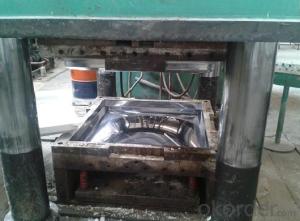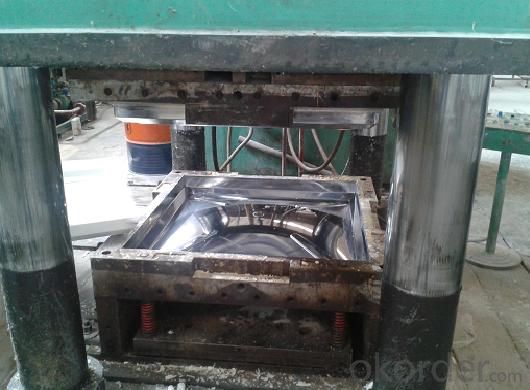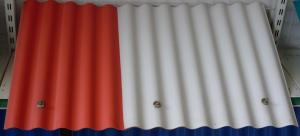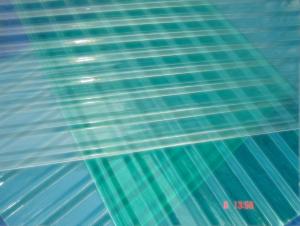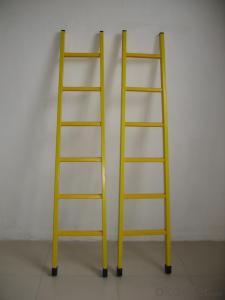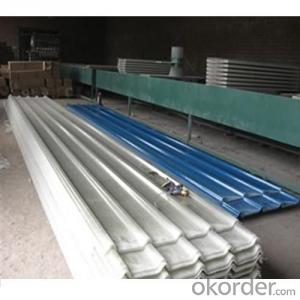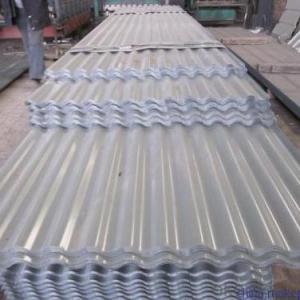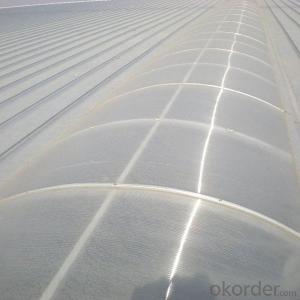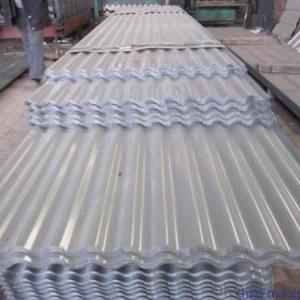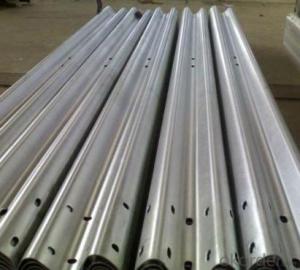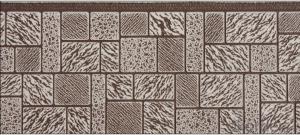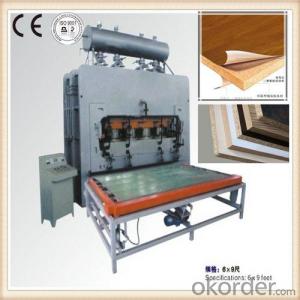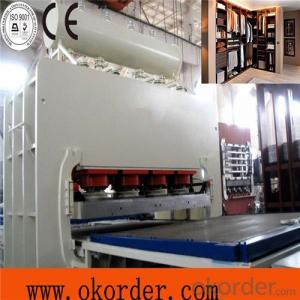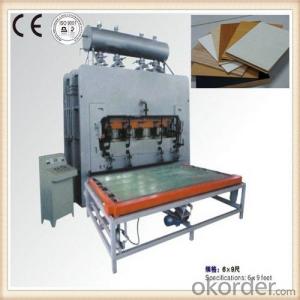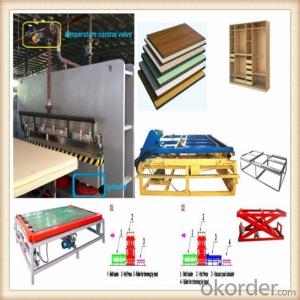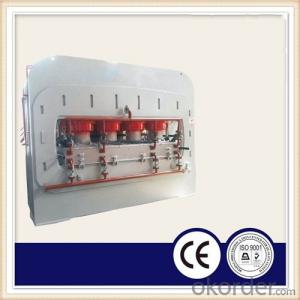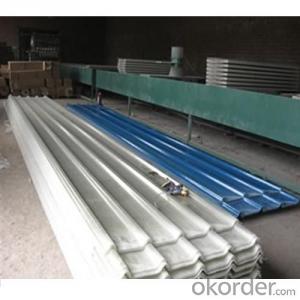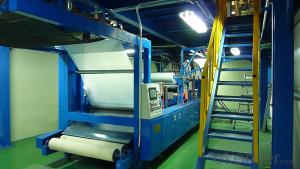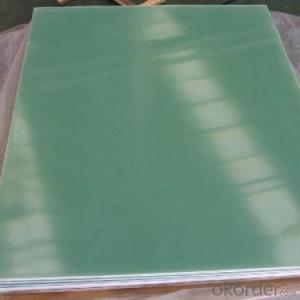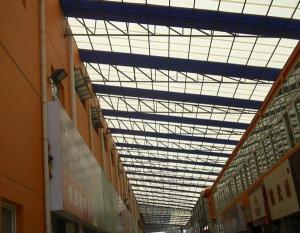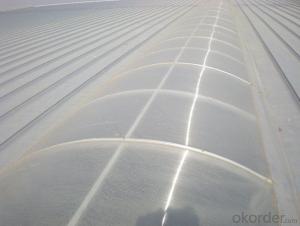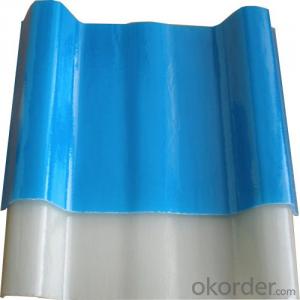Hot Pressed SMC Water Storage Tank Panel
- Loading Port:
- Tianjin
- Payment Terms:
- TT or LC
- Min Order Qty:
- 2 m²
- Supply Capability:
- 100000 m²/month
OKorder Service Pledge
OKorder Financial Service
You Might Also Like
Product Introduction
FRP water tank is a new product used internationally . Assembled using FRP board possessing the advantages of non-pollution, light in weight, corrosion proofing, long service live and simple maintenance. High water quality is assured for the use of food grade resin. Our FRP water tank is recommended by China Construction Material
The SMC FRP water tank is make up of SMC moulded signal board,sealing material, metallic structure, and plumbing .We can according to customers requirements assemble 1-1000M3 water tank.
Advantages of smc water tank
corrosion resistance
Light weight, good quality
Beautiful shape, long-life time service
Convenient installation
Size and shape can be customized
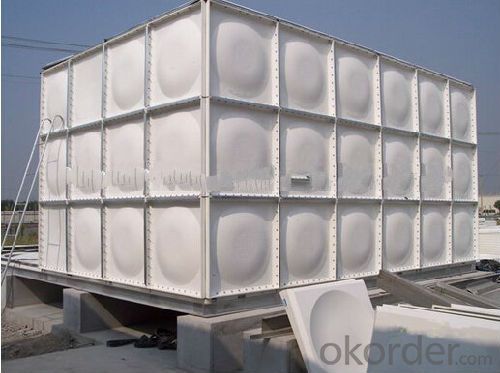
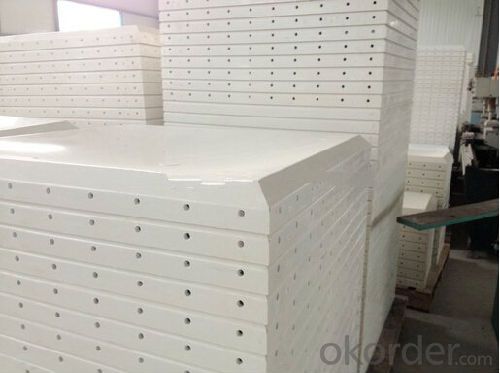
SMC PANEL PHYSICAL PROPERTY:
FLEXURAL STRENGTH: >=205.94MPA
FLEXURAL MODULAR: >=7.0GPA
TENSILE STRENGTH: >=117.68MPA
BARCOL HARDNESS: >=60
WATER ADSORPTION: <=0.2%
FIBERGLASS CONTENT: >=30%
SMC PANEL APPEARANCE: NO BUBBLE, HOLES, SCRATCH, DRY FIBERGLASS
SMC PANEL DIMENSION: <= 0.3% OF NOMINAL SIZE OF PANELS
KNOCKOUT MARK: <=1.0MM
Specification
Thickness of SMC panels
TANK HEIGHT (M) | Location of panel in the tank | WEIGHT OF SMC PANEL (KGS) |
1 | Roof panel | 15.2 |
Floor panel | 21.6 | |
Side panel – 1st floor | 18.1 | |
2 | Roof panel | 15.2 |
Floor panel | 23.6 | |
Side panel – 1st floor | 18.1 | |
Side panel – 2nd floor | 22.2 | |
3 | Roof panel | 15.2 |
Floor panel | 27.6 | |
Side panel – 1st floor | 18.1 | |
Side panel – 2nd floor | 22.2 | |
Side panel – 3rd floor | 26.2 | |
4 | Roof panel | 15.2 |
Floor panel | 30 | |
Side panel – 1st floor | 18.1 | |
Side panel – 2nd floor | 22.2 | |
Side panel – 3rd floor | 26.2 | |
Side panel – 4th floor | 32 |
FAQ
1.Which country do you mainly export to?
A: Our products are very popular in Mid East, India, South East Asia, Latin America, Africa.
2.Q: What’s the advantage of you compared with other suppliers experienced in foreign trade?
A: We have been specialized in FRP products for over decades years and approved by many domestic companies. Except for our quality and price, we’re also able to give you the best service.
3.Q:Can you provide some samples?
A: Yes, of course. We will send you samples for your confirmation before you place firm orders.
- Q: Are FRP roofing panels environmentally friendly?
- Yes, FRP roofing panels are considered environmentally friendly. They are made from recycled materials and are highly durable, which means they have a long lifespan and reduce the need for frequent replacements. Additionally, FRP roofing panels are energy-efficient and can help reduce energy consumption by providing better insulation, thus reducing the reliance on heating and cooling systems. Overall, FRP roofing panels contribute to a greener and more sustainable environment.
- Q: Are FRP roofing panels suitable for agricultural or farm buildings?
- Yes, FRP (Fiberglass Reinforced Plastic) roofing panels are suitable for agricultural or farm buildings. FRP roofing panels are known for their durability, strength, and resistance to various weather conditions, making them ideal for use in farm buildings. These panels are lightweight, which makes installation easier and cost-effective. Additionally, FRP panels provide excellent UV resistance, ensuring that they will not degrade or discolor over time when exposed to sunlight. The non-corrosive nature of FRP roofing panels is also a significant advantage, as it makes them highly resistant to chemicals, moisture, and other substances commonly found in agricultural environments. Furthermore, FRP panels offer good insulation properties, helping to regulate temperature and reducing energy costs. Overall, FRP roofing panels are a reliable and practical option for agricultural or farm buildings due to their strength, durability, weather resistance, and other beneficial characteristics.
- Q: Can FRP roofing panels be used in areas with high levels of industrial emissions?
- Yes, FRP roofing panels can be used in areas with high levels of industrial emissions. FRP (Fiberglass Reinforced Plastic) panels are known for their durability and resistance to corrosion, making them suitable for harsh environments such as those with high industrial emissions. They are designed to withstand chemical exposure, UV radiation, and temperature variations, making them a reliable choice for areas with heavy pollutants. However, it is still important to consider the specific emissions and consult with manufacturers to ensure that the FRP panels meet the required standards and can withstand the specific conditions of the industrial emissions in the area.
- Q: Can FRP roofing panels be used for flat roofs?
- FRP roofing panels are indeed applicable for flat roofs. These panels are renowned for their durability, lightweight design, and ability to withstand corrosion, rendering them suitable for a wide range of uses, including flat roofs. They exhibit exceptional resistance to weather conditions and can endure even the harshest environmental elements. Furthermore, the installation and maintenance of FRP panels are hassle-free, which contributes to their popularity for flat roofs. Nonetheless, it is crucial to seek guidance from a skilled roofer or contractor to guarantee proper installation of the FRP panels and ensure compliance with your flat roof's specific demands.
- Q: Do FRP roofing panels require specific fasteners for installation?
- For the installation of FRP roofing panels, it is necessary to use specific fasteners. These panels are lightweight and durable, making them suitable for various roofing applications. However, to ensure the roof's integrity and proper installation, it is crucial to use the appropriate fasteners. The type of fasteners required for FRP roofing panels depends on several factors, including the panels' type and thickness, the substrate material, and the environmental conditions. To determine the correct fasteners for your specific installation, it is essential to consult the manufacturer's guidelines or seek professional advice. Commonly used fasteners for FRP roofing panels include stainless steel screws, nails, or bolts. These fasteners should be resistant to corrosion since they will be exposed to outdoor elements. Additionally, they should be long enough to securely penetrate both the panel and the substrate. Proper fastening is vital to prevent roof leaks, damage, and premature wear. Using incorrect or inadequate fasteners can lead to issues such as panel movement, water infiltration, or even structural failure. In conclusion, FRP roofing panels necessitate specific fasteners for installation. To ensure a successful project, it is important to select the appropriate type and size of fasteners based on the manufacturer's recommendations and the specific requirements of your roofing project.
- Q: Can FRP roofing panels be used for wall cladding as well?
- Yes, FRP roofing panels can be used for wall cladding as well. FRP panels are versatile and durable, making them suitable for both roofing and wall applications. They provide excellent insulation, weather resistance, and are lightweight, making them a cost-effective and efficient choice for wall cladding projects.
- Q: Can FRP roofing panels be used for awnings or canopies?
- Yes, FRP roofing panels can be used for awnings or canopies. FRP (Fiberglass Reinforced Plastic) is a durable and lightweight material that is commonly used for roofing applications. Its strength and weather resistance make it suitable for creating awnings or canopies to provide shade and protect against the elements.
- Q: Are FRP roofing panels resistant to graffiti?
- FRP roofing panels are typically resistant to graffiti due to their durable and non-porous surface. The panels are made from a combination of fiberglass and resin, which creates a strong and smooth finish that is difficult for graffiti to adhere to. Additionally, FRP panels can be manufactured with a protective gel coat that further enhances their resistance to graffiti. This gel coat acts as a barrier, preventing paint and other substances from penetrating the surface of the panels. However, it is important to note that no material is completely immune to graffiti, and determined vandals may still be able to deface FRP roofing panels with certain types of graffiti materials. In such cases, prompt removal and cleaning of the graffiti is recommended to maintain the panel's appearance and prevent further damage.
- Q: Are FRP roofing panels compatible with different types of flashing systems?
- Yes, FRP roofing panels are compatible with a variety of flashing systems. These panels can be easily integrated with different types of flashing systems, such as metal or PVC, to ensure proper waterproofing and protection against leaks. Proper installation and sealing techniques are crucial to ensure a secure and durable connection between the FRP panels and the flashing system.
- Q: Can FRP roofing panels be used for both residential and commercial outdoor dining areas?
- Yes, FRP roofing panels can be used for both residential and commercial outdoor dining areas. FRP (Fiberglass Reinforced Plastic) roofing panels are highly versatile and durable, making them suitable for use in various applications, including outdoor dining areas. These panels are known for their resistance to corrosion, UV rays, and weathering, making them perfect for outdoor use. They are also lightweight and easy to install, making them a practical choice for both residential and commercial settings. Additionally, FRP panels come in a variety of colors and designs, allowing for customization to match the aesthetic of the dining area. Overall, FRP roofing panels are a reliable option for creating a comfortable and long-lasting outdoor dining experience, whether it is for residential or commercial purposes.
Send your message to us
Hot Pressed SMC Water Storage Tank Panel
- Loading Port:
- Tianjin
- Payment Terms:
- TT or LC
- Min Order Qty:
- 2 m²
- Supply Capability:
- 100000 m²/month
OKorder Service Pledge
OKorder Financial Service
Similar products
Hot products
Hot Searches
Related keywords
